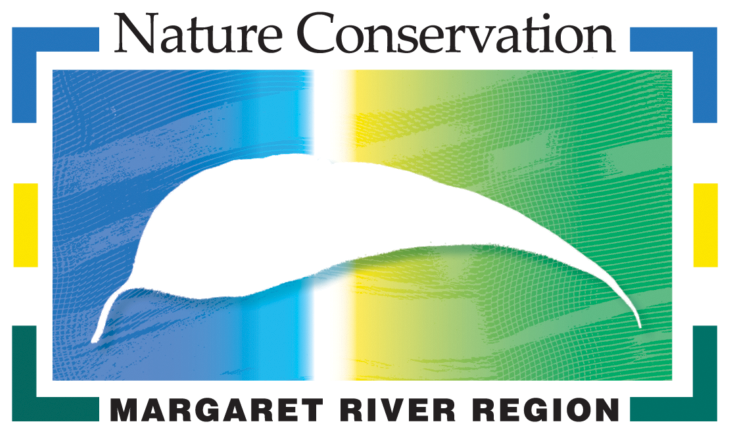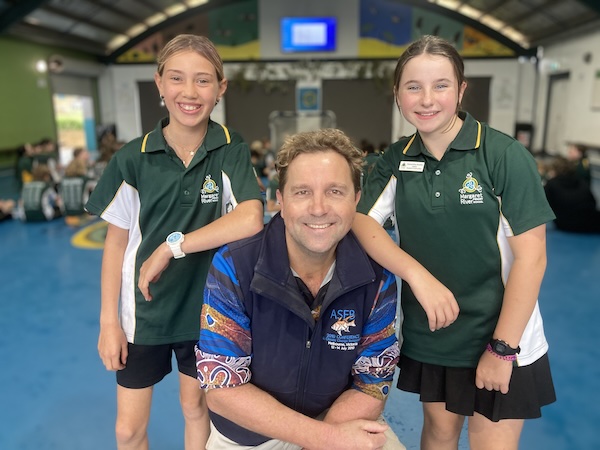Students from Margaret River Primary School are on a mission to protect our native snake-neck turtle – and they want the community to lend a hand.
The Year 6 students are working with Nature Conservation Margaret River Region’s youth education program Our Patch to understand where these elusive turtles nest and breed along the Margaret River or Wooditjup Bilya, and what actions the community can take to protect them.
Joining the students this week was Professor Stephen Beatty, one of the state’s foremost experts in freshwater ecology and the deputy director of the Centre for Sustainable Aquatic Ecosystems at Murdoch University. He said research had been carried out on snake-neck turtle numbers, distribution, breeding, habitats and threats in Perth’s wetlands, but there were big gaps in the research including in the Margaret River region.
Prof Beatty wowed the kids with snake-necked turtle facts including that these apex wetland predators:
- hold their breath for five hours underwater
- survive for 18 months without food or water by living off body fat
- can wait underground for more than 500 days until water floods their burrow and they wake up and return to the wetland or stream
- males are longer than females due to the length of their penis which is in their tail
But snake-neck turtles have many challenges including the drying climate, predators, wetlands being lost to development, land clearing and loss of riparian vegetation.
Next, the students will get their hands dirty and work alongside the Shire of Augusta Margaret River and the Friends of Barrett Street Reserve to replant, weed and restore an important riparian zone along the Margaret River which is key habitat for turtles.
They’ll also be working alongside the Undalup Association’s Wadandi rangers and the school’s Aboriginal education officer Jansie Sonter on a two-way science project blending traditional knowledge with modern science to better understand turtle biology and habitat.
Nature Conservation’s Our Patch program involves eight classes of Year 6 students from six different schools across the Capes region, with each class learning about their local catchment from scientists, landholders and cultural custodians before zeroing in on a unique environmental issue and devising innovative solutions.
The exciting nature-based learning in the Our Patch program will culminate later in the year when each class presents their project and solutions at the Margaret River HEART for the annual Our Patch celebration day.
Our Patch officer Lauren Scanlon says the snake-neck turtle is a fascinating creature, with an incredible underwater acoustic repertoire to compensate for the limited visibility in river water. “But there’s a lot we don’t know about them, like their distribution and numbers in the Wooditjup Bilya, and where they breed and nest,” she says.
Lauren said Professor Beatty’s visit was an amazing opportunity for the students to meet one of the state’s leading researchers in the field. The professor has helped design local fishways to aid fish and lamprey migration, and has done extensive research into threatened fish species and lampreys in the Margaret River.
She said the aim of Our Patch was to inspire our young people – and their families – to become stewards for the Margaret River as it faces threats including weeds, tourism and recreation pressure, climate change and reduced flow, which is down by more than 50 per cent based on historical data.
“There’s a lot to love about the Wooditjup Bilya and we are so fortunate to live alongside it,” Lauren says. “But that comes with a responsibility to act as stewards and ensure we are a positive influence. If we understand our river’s values and threats, we can make sure that our actions improve the health of the river.”
Ms Scanlon said the real-life Our Patch projects make a real difference to the community and environment.
“Working with local people who are passionate about connecting with and protecting our environment really inspires the children to get involved and make a difference,” she says. “Our Patch depends on these local legends volunteering their time to share their passions with the next generation. We’re grateful for the opportunity to work with local people and inspire direct, meaningful local environmental learning and stewardship.”
Our Patch is generously funded by the Shire of Augusta-Margaret River, Lions Club of Cowaramup, Margaret River Rotary, the Paskeville Foundation and local schools.

